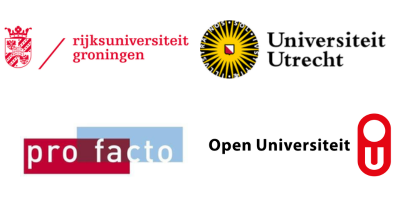RUG en Pro Facto onderzoeken samen tevredenheid over behandeling aardbevingszaken door Rechtbank Noord-Nederland

Wat kan de rechtbank doen om de kwaliteit van geschilbeslechting in mijnbouwschadeprocedures te vergroten? Dat is de vraag waarop prof. Heinrich Winter, prof. Bert Marseille, dr. Marc Wever en mr. Joachim Bekkering (RUG), mr. Christian Boxum (Pro Facto), prof. Elbert de Jong (Universiteit Utrecht) en dr. Michiel Tjepkema (Open Universiteit) antwoord wilden krijgen. Samen onderzochten ze de tevredenheid over de behandeling van aardbevingszaken door de Rechtbank Noord-Nederland.
Naar de bestuursrechter
Sinds 2018 kunnen gedupeerden van aardbevingsschade naar de bestuursrechter als ze het niet eens zijn met een beslissing van het Instituut Mijnbouwschade Groningen. Het gaat meestal om schade als gevolg van aardbevingen. De rechtbank behandelt aardbevingszaken anders dan andere bestuursrechtzaken. Zaken worden zo snel mogelijk op zitting behandeld, waarbij meer tijd wordt genomen om de zaak te bespreken.
Wisselende tevredenheid ondanks toegankelijke procedure
Uit het onderzoek van Pro Facto, de RUG, de UU en de Open Universiteit blijkt dat rechtszoekenden wisselend tevreden zijn over de behandeling van aardbevingszaken door de Rechtbank Noord-Nederland. Gemiddeld scoort de procedure bij de rechtbank als geheel bij rechtzoekenden een 5 op een schaal van 1-10. Wel werd er geconcludeerd dat de procedure relatief toegankelijk is (geen financieel risico, geen verplichte procesvertegenwoordiging, laag griffierecht).
Zaken sneller behandelen
De betrokken onderzoekers denken dat de rechtbank de meeste invloed kan uitoefenen op de snelheid waarmee zaken worden behandeld en daarmee indirect ook op andere aspecten die van invloed zijn op de kwaliteit van de geschilbeslechting. Een veelbelovend middel hierbij is dat de rechtbank zo snel mogelijk na het instellen van het beroep contact legt met partijen om hun wensen over de wijze van behandeling van de zaak te vernemen.
Het rapport van dit onderzoek is te bekijken door op de link hieronder te klikken.
Meer nieuws
-
08 december 2025
Kleurrijke Kopstukken: Bert Röling
